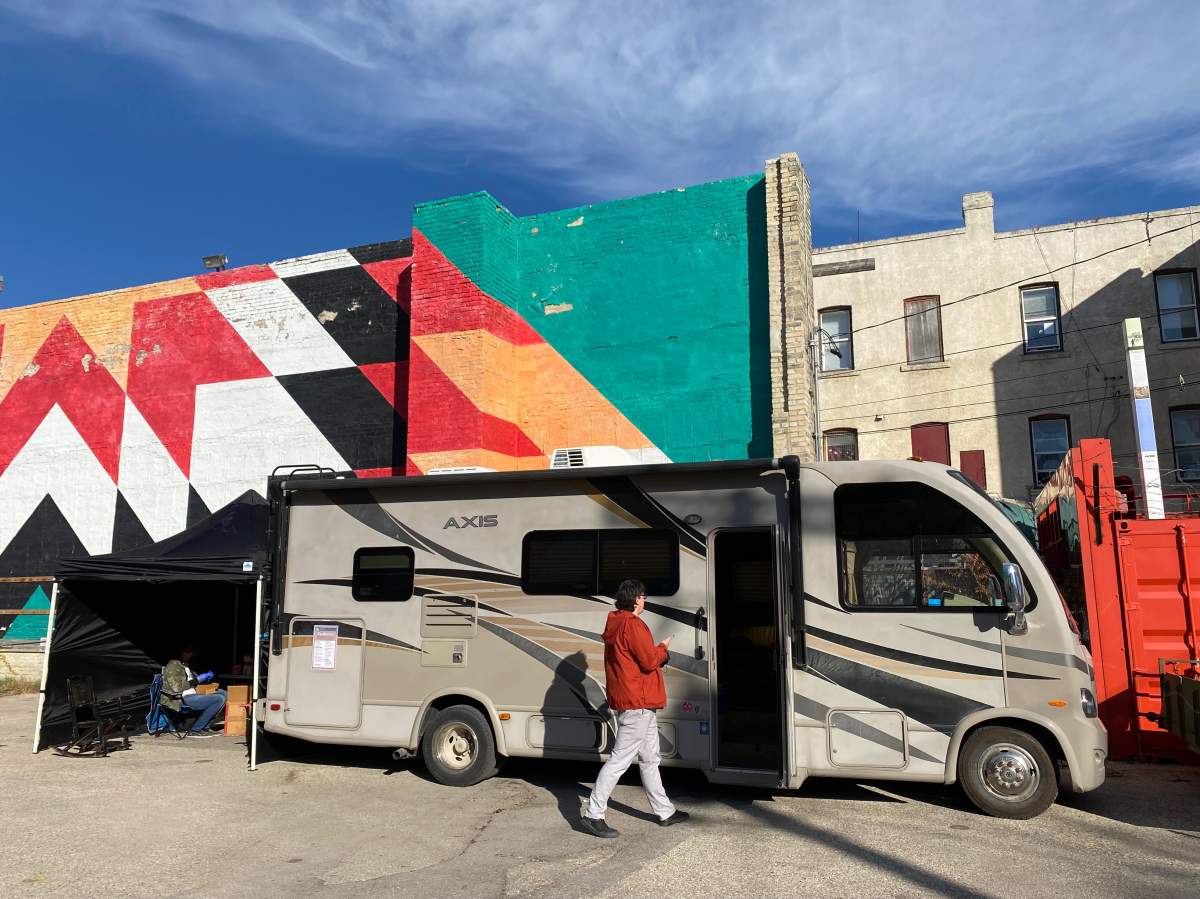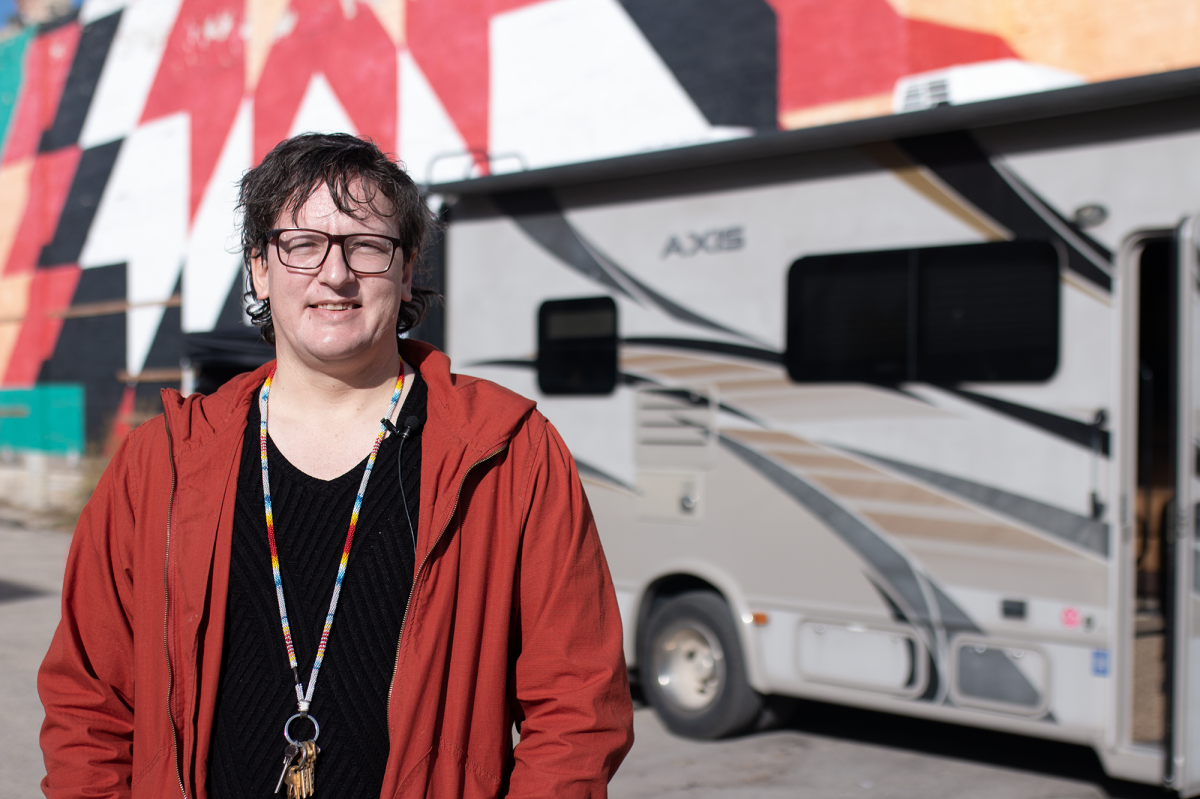A new project to help prevent drug overdose deaths, which have surged during the pandemic, is underway just off Main Street in downtown Winnipeg.

On Sunday, Sunshine House navigated its third day of operating Manitoba’s first formal overdose prevention site — one that’s being run out of an RV the organization purchased over the summer.
Since Friday, dozens have picked up harm reduction supplies, including clean needles, condoms and safer smoking kits, Sunshine House’s executive director Levi Foy told Global News on Sunday.
It’s also a place people can test and use drugs in the presence of a peer, where naloxone kits are also readily available.
“They can test their supply on the site or they can take them to a place where they’re more comfortable and test their supply so that they can be aware of the presence of either benzos or fentanyl in their substances, so they can make better decisions,” Foy said.
The team plans on mainly serving the downtown, Point Douglas, West Broadway and West End neighbourhoods between Tuesday and Sunday, Foy said.

Get breaking National news
“In the event there is a negative reaction, we can intervene immediately, and that way we can prevent, hopefully, loss of life or any serious harms.”
On Thursday, Health Canada gave Sunshine House the Urgent Public Health Needs Sites exemption it needed to run the project, the organization announced over social media last week. The mobile overdose prevention site officially opened on Friday following months of waiting for approval.
“It was just (an) overwhelming range of emotions that I don’t have the ability to deal with, ranging from excitement to nervousness,” Foy said.
Marion Willis with Saint Boniface Street Links calls the mobile testing unit critical and long overdue in the city, especially in a year that’s expected to set another record for overdose deaths.
“Those aren’t records we want to be setting,” she said. “Drug testing can prevent death by allowing those users to make an informed decision about whether they want to use those drugs.”
“It’s a very effective form of harm reduction. It also is educational.”
For Willis, who founded St. Boniface Street Links and serves as its executive director, working together to develop a harm reduction strategy is paramount, along with making progress on enforcement, intervention and prevention.
The overdose prevention site is the result of Sunshine House’s collaboration with Manitoba Harm Reduction Network and other organizations to determine a community-based strategy to manage Winnipeg’s overdose crisis and toxic drug supply, Foy said.
The project, which isn’t considered a safe consumption site because it isn’t staffed with health professionals, received funding through Health Canada’s Substance Use and Addictions Program to cover labour and some supplies, they said.
“This is all peers or people who … use drugs or have used drugs, who run this,” Foy said.
“(Health Canada) didn’t fund the major capital expenses, such as … a more accurate drug testing machine, as well as the RV itself. We had to purchase that with our own donations.”
Sunshine House is raising money for more specialized equipment that would give users a percentage breakdown of what’s in their substances.
The overdose prevention site currently isn’t funded by the municipal or provincial governments.
“All we’re asking from the province is just to kind of allow us to do this type of work,” Foy said. “We’re just asking for different types of solutions to a very complicated human problem.”
“If we can demonstrate need or if, maybe we don’t need a site like this … maybe we can potentially explore other funding options.”











Comments
Want to discuss? Please read our Commenting Policy first.